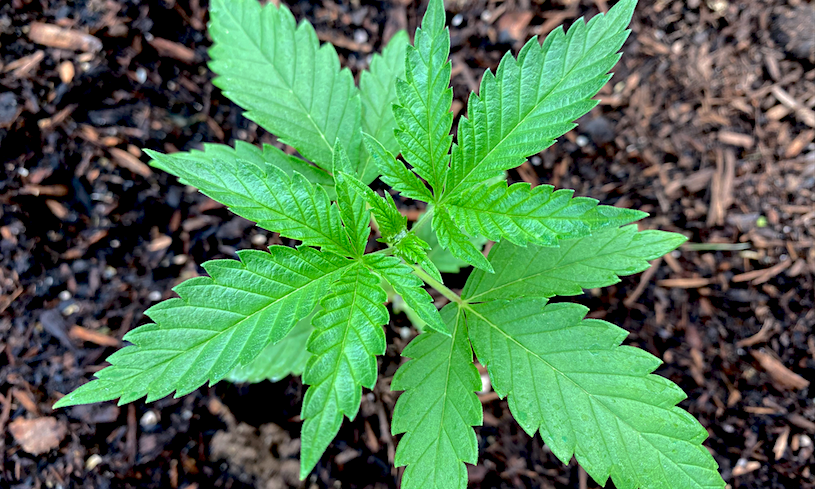About one-third of marijuana consumers say they would go back to the illicit market if cannabis was rescheduled and only made legally available as a Food and Drug Administration- (FDA) approved prescription drug, according to a new poll.
As federal agencies work to complete an administrative review into cannabis scheduling, the survey from Nugg MD shows wariness about how the government could hypothetically become involved with marijuana in the event of a reclassification.
Of course, even though the U.S. Department of Health and Human Services (HHS) has recommended moving cannabis from Schedule I to Schedule III of the Controlled Substances Act (CSA), that would not make it a legal prescription drug. The FDA drug approval process is separate, and the agency typically does not approve botanicals as prescription medications.
Many industry observers also believe that the federal government would continue its approach of generally allowing state cannabis markets to operate without interference following rescheduling, though some advocates and consumers have concerns that the change could disrupt state-licensed businesses by allowing a pharmaceutical takeover of the marijuana industry—and the Nugg MD survey underscores that point.
Asked what they would do if their “only option to purchase cannabis legally was to buy it at a pharmacy with a prescription,” a majority (55 percent) said they would visit the pharmacy, but 32 percent said they would instead risk being criminalized by buying from the illicit market. Six percent said they wouldn’t use cannabis at all in that situation, and seven percent said they’d do something else.
Deb Tharp, head of legal and policy research at NuggMD.com, argued that the poll results show that “consumers are likely to lose out under rescheduling unless Congress steps up and passes legislation to preserve existing state markets.”
“According to government estimates, more than 35 million Americans use cannabis on a monthly basis,” she told Marijuana Moment. “Pushing more than 10 million people into the unregulated market for cannabis strikes me as a very bad outcome because black market cannabis is not safe. I don’t think the severity of this situation is entirely clear to policymakers.”
The survey also asked more generally about consumer preferences, with 77 percent saying they’d rather use “traditional botanical products,” compared to 18 percent who chose “FDA-approved” cannabis.
In general, just under half of respondents (47 percent) said that a decision to move marijuana to Schedule III wouldn’t affect their level of access. Another 28 percent said they believe it would make access harder, and 25 percent said it would get easier.
Overall, 85 percent of poll participants said they would rather the federal government deschedule (i.e. legalize) marijuana, instead of simply moving it to Schedule III. Another 83 percent said they expect racial disparities in cannabis criminalization enforcement would persist under a Schedule III reclassification, while 17 percent said they trust the law would be enforced impartially.
Survey respondents also said that they would prefer a marijuana industry that continues to operate in many different state markets (69 percent), rather than have “one big, national market” (27 percent).
“Consumers simply do not want FDA or pharmaceutical companies meddling with their cannabis,” Tharp of Nugg MD said. “They prefer state-run cannabis markets. They have moderate to high levels of trust in state controls. And many of them will obtain the cannabis they want, even if it means not abiding by the law. When it comes to supply, cannabis consumers have a rich history of just figuring it out.”
“The message this poll sends to policymakers is clear: If you’re not willing to walk into a regulated dispensary and start talking to consumers, at least be aware of what they’re saying to the folks who are talking to them. Congress needs to preserve existing state cannabis markets, and it needs to create a way for honest, regulated cannabis retailers to sell the products that consumers want without being hamstrung by FDA compliance.
Policymakers have used cannabis for more than a century to weaponize the law against people. They clearly know how to hold this industry down, so they must know how to prop it up.”
While observers disagree about the potential broad implications of moving cannabis to Schedule III, there is a consensus that it would at least exempt the marijuana industry from the 280E tax provision that prevents operators from writing off business expenses since it only applies to sellers of Schedule I and II drugs. The new poll found that 70 percent of respondents said they trust cannabis businesses to “pass on to consumers any tax savings brought about by new regulations.”
The survey from Nugg MD—a cannabis technology company that links people to doctors via telemedicine for medical cannabis recommendation—involved interviews with 795 cannabis consumers from December 11-18.
Meanwhile, another poll released last week found that President Joe Biden stands to make significant political gains if marijuana is rescheduled under his administrative directive.
Of course, Biden doesn’t directly control the final outcome. HHS recommended the rescheduling action upon completion of a scientific review last year, but the Drug Enforcement Administration (DEA) reserves “final authority” in the matter.
Congressional researchers also recently laid out the limitations of rescheduling in a report—emphasizing that state cannabis markets would continue to run afoul of federal law, and existing criminal penalties for certain marijuana-related activity would remain in force.
Biden has routinely touted his 2022 scheduling directive, as well as a mass pardon he granted for people who’ve committed federal marijuana possession offenses. He followed up on that action last month with a renewed and expanded pardon proclamation.
State Marijuana Regulators Discuss Social Equity Efforts At National Academies Meeting
Read the full article here

